DID YOU KNOW?
21.6%
Increase in single-family home prices year‑over‑year
A Miami-based real estate firm that specializes high‑end luxury homes in South Florida.
With many competitors, both local, national, and even international, how can a real estate firm with a highly‑specific niche market of South Florida standout and move properties?
Create a high‑end luxury real estate website with a strong focus on South Florida properties that can translate into multi‑million dollar deals by generating viable leads.
Lead User Experience Designer
Team lead during the entire design process: user research, wireframing, prototyping, usability studies, and design mock‑ups.
My team and I conducted interviews with some of the customer’s clients, gathering information on their behaviors, interests, and frustrations during the process of purchasing property in South Florida. After the interviews were completed, we created an empathy map to understand our users and their needs. A primary user group identified through our research was upper-class South American businessmen, between the ages of 40 to 50, who would benefit from owning a second property in the United States.
In addition to the appeal of an international city with an existing strong Hispanic culture, their investment would be backed by a strong and stable U.S. dollar. Also, the area boasts a healthy population of renters.
Clients must rely on the expertise of agents with a deep understanding of the local real estate market. Separating the legitimate from the fake is hard to do from a distance.
Images serve as a gateway to a showing. They can make or break interest in a property. Previously, the quality of images attached to listings was extremely poor and unflattering.
The best returns come from buying properties in upcoming neighborhoods and districts. These areas change so often that it's challenging to stay updated on real estate trends.
Increase in single-family home prices year‑over‑year

Not only are properties in South Florida great investments, they make great second homes.
José is a 45-year-old wealthy businessman with a sizable amount of disposable income. Brazil's unstable currency makes U.S. investments attractive. He enjoys visiting Miami with his family and would love to own property there, either as a second home or a rental property. José and his family would ideally commute back and forth from Brazil.
Hometown: São Paulo, Brazil
Family: Spouse, 3 Children
Primary task: Find a way to search, visit, and purchase South Florida properties.

My team and I assembled an affinity map to organize the results of our competitive analysis into gaps left by the competition and opportunities presented by these gaps.
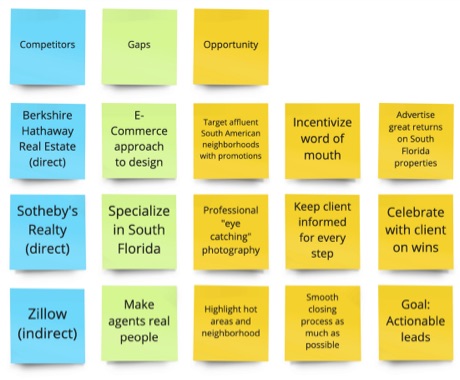
With the research complete and opportunities identified, it was time to start sketching screens. This step is crucial when it comes to the hierarchy of content and the utilization of specific components. We found that our users primarily use their smartphones to conduct research, so we utilized a mobile first approach to our responsive website.
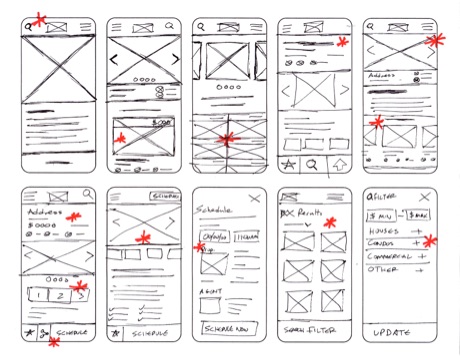
The team and I continued to ideate our sketches until they were approved by our stakeholders and subject matter experts. The various iterations of the sketches helped us solidify a favorable, curated format for our E-Commerce website. The next step was to craft some wireframes that would follow Jose’s primary task of searching through properties and scheduling a showing.

Home screen

Property listing

Search results

Communities page
Once the wireframes were completed, we put together a low-fidelity prototype that demonstrates an ideal client’s journey of searching South Florida properties by listing, features, or community and establishing a showing. This prototype would serve as a testing ground for our usability study.
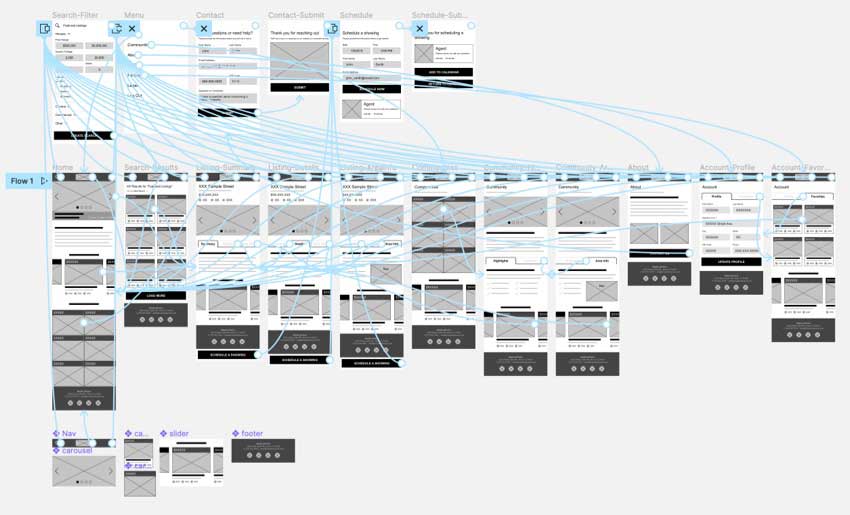
The team and I conducted live moderated interviews with several Mayfair Advisors’ clients.
Find an ideal property listing and schedule a showing.
After wrapping up our interviews and observations, we compiled all of the data and found we had mostly positive results with one big insight:
After a successful round of testing with clients, it was time to make our dashboards come to life with a round of mock‑ups.

Home screen

Property listing

Search results

Communities page
The final step before handing off our designs to the development team was to take our high-fidelity mock-ups and create a working prototype, which would be an integral part of future presentations, help us verify the final details with testers, and serve as a visual template for the developers to emulate.
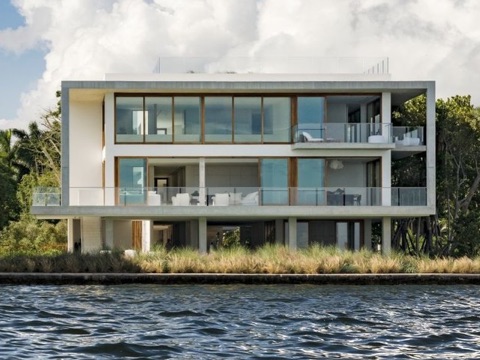
Nothing does more to pique one's interest than beautiful imagery. Our extensive research showed that complementary images were rather hard to come by at that time, even on the websites of industry leaders, so we recommended that all of the listings on the website be shot exclusively by a professional photographer.
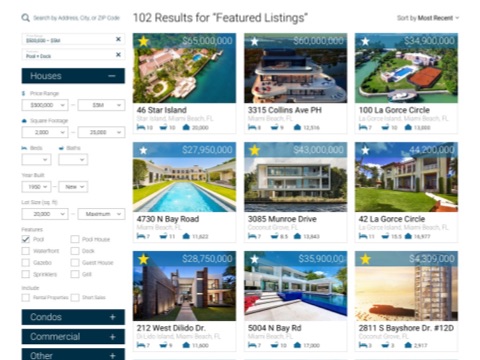
Real estate websites at the time had an outdated approach: "About Us" pages with a phone number and a terrible search API. This insight inspired a transactional e‑commerce approach that highlighted new and exclusive properties much like an e‑tailer would feature products, but the goal is to score quality leads.
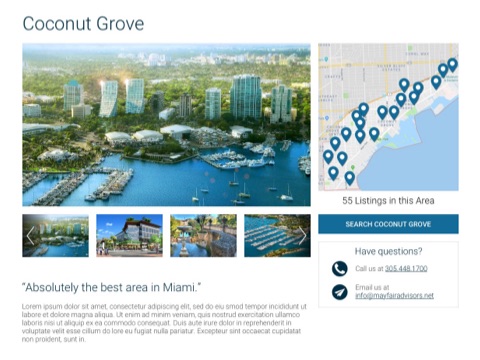
Since communities drive many real estate decisions, a "Communities" feature was designed to allow users to learn more about desirable communities in South Florida. Users could also browse local listings to check out surrounding restaurants, parks, local school systems, and more.